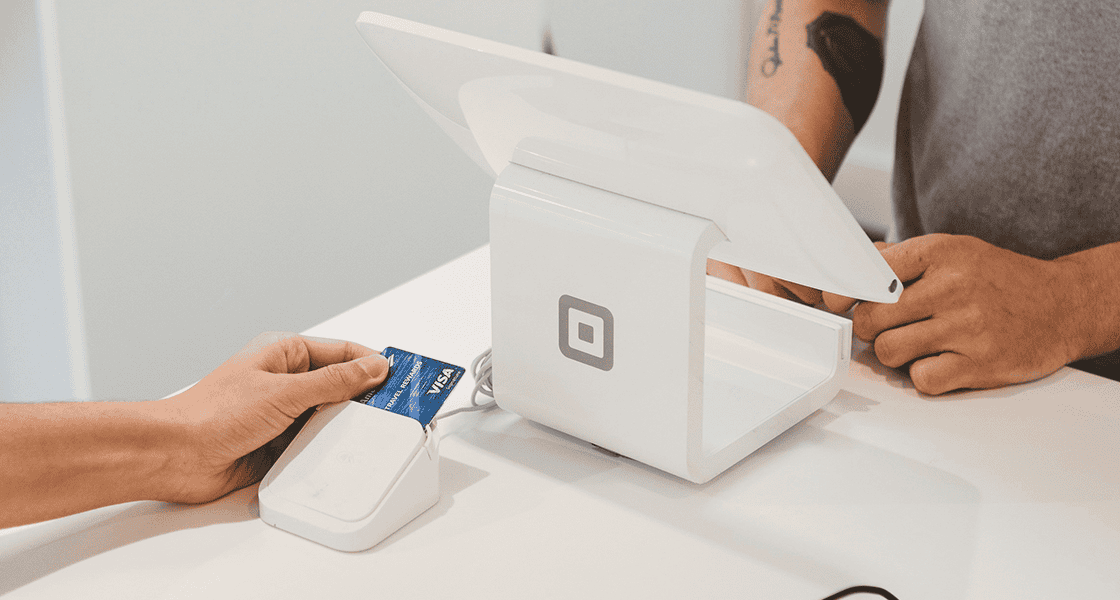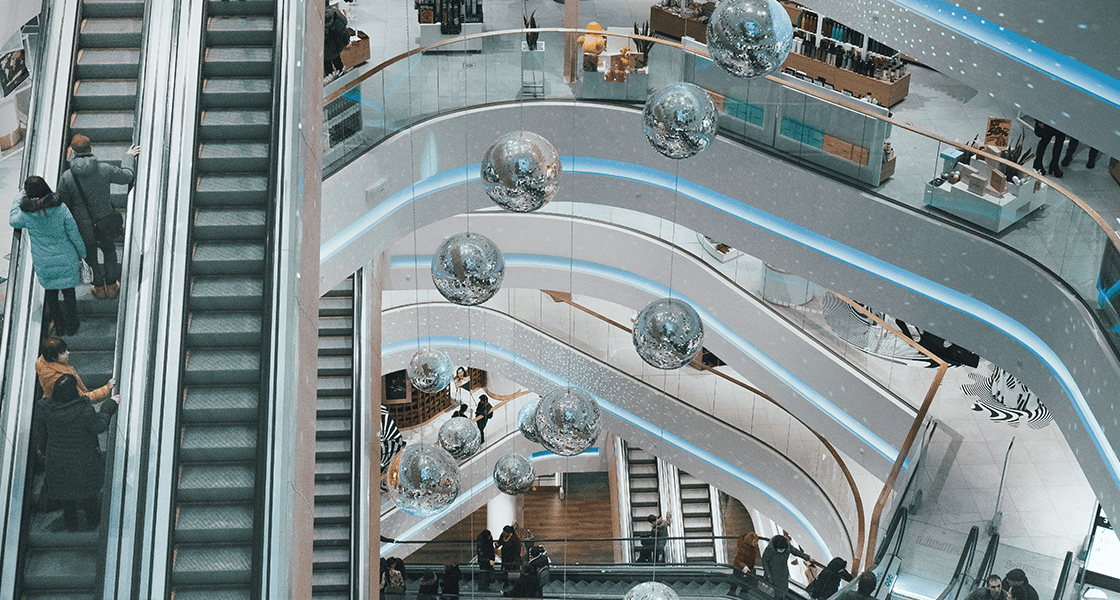Retail & Distribution
CLICK & COLLECT: A GREAT OPPORTUNITY FOR RETAILERS
27 September 2016
“Lots of people thought that online retailing would cannibalize retail store sales and that ‘clicks’ were going to slowly kill brick-and-mortar stores. But the opposite has happened: rather than competing with each other, the online, store and mobile sales channels actually complement each other very well. When a retailer handles it properly, the implementation of an omnichannel strategy results in a stimulus for sales. Internet has become the main way to pull traffic to stores and in this era of digital economy, ‘Click & Collect’ represents a tremendous opportunity for specialty retail trade.” Olivier Chiono, Retail Product Management Director, Cegid
Online retailing has advanced considerably in the past few years, making it possible for online shopping to become popular. In fact, $414 billion of online retail sales are expect by 2018 – approximately 11% of total U.S. retail sales¹.
19% OF ONLINE SHOPPERS GO TO A STORE TO PICK UP ONLINE
ORDERS AT LEAST 2-3 TIMES PER MONTH²
It’s a fact: the touch points of the shopping journey have multiplied. As a consumer, you can choose “Store only” (shopper asks salespeople and buys in-store) or “Digital only” (shopper researches product information online and buys online). But now there’s a new type of shopping behavior that mixes these two approaches: Research Online, Purchase Offline (“ROPO”) is based on collecting information from websites and purchasing in-store. This behavior is not related to a new type of consumer; it varies according to circumstances and opportunities. In the development of ROPO behavior, stores see the clear progression of “Click & Collect”, a phenomenon retailers can use to their advantage. This practice is employed by increasingly demanding customers who are familiar with new technology. Click & Collect refers to a purchasing behavior that is deliberately multi-channel: shopper reserves the product online from the store’s stock, picks it up from a store location of their choice (read story).
What is Click & Collect
Click & Collect is a service that enables consumers to make a purchase or reserve a product online, then pick up the item from a store location of their choice. The benefit of Click & Collect is that it allows shoppers to reserve a product stock already at a store location. It is essentially a Web-to-store service. The term “Click & Collect” is often confused with a simple store pick-up, which is based on sending an order from the store’s e-business stock for pick-up within a few days by the consumer. In this case, the store is merely a package pick-up relay.
2/3 OF CONSUMERS WHO PURCHASE ONLINE VISIT THE STORE BEFORE OR AFTER
THE TRANSACTION TO VIEW, EVALUATE OR COMPARE THE PRODUCT³
In-store customer acquisition begins with an online search
Increasingly, consumers use the digital channel to look for initial information. We know their main motivations are: price (reputed to be more attractive online), time-saved and the possibility of comparing offers. This is how marketplaces have become established in this new way of doing business. Now prized by all online retailers, these digital marketplaces offer the sought-after product in the nearest stores with just a few clicks (e.g. Google Shopping, Socloz, Mappy Shopping, We Are the Shops, etc.). Because this is an effective service for generating traffic to local stores, it’s important for stores to use the Web channel well (through visibility and referencing) to maintain relationships with consumers that will prevent them from going elsewhere for a product. In this way, the Web becomes a strong component in creating customer loyalty. It doesn’t compete with the retail store; rather, it accelerates traffic to the store.
The store must reinvent itself
Although consumers may prefer to make purchases online more frequently than ever before, the store is irreplaceable because of its ability to provide a much higher sales conversion rate. It’s the key setting for a stimulating customer experience. Shoppers are able to view the products first-hand in a visual environment where they can try it out before purchase. Additionally, the salesperson plays an essential role in creating a personal relationship with the shopper and, as a result, is able to strongly influence the act of buying.
For these reasons, the store has a distinct role to play in the retail revolution, but only if it’s able to reinvent itself to maintain relevance. This is because online retail has created more demanding consumers; they want to find their product immediately and don’t want to make a trip to a store only to discover the item they want is not available. Shoppers are time poor and want their items without constraints. Their expectations of a fluid shopping journey start with the shopper’s arrival at the store; they want a personalized service, and help in choosing, and access to a broader assortments.
Shoppers want quick tools, extending all the way to checkout, that enable a fast online shopping-like experience, which has become the norm. Transforming the store is an essential condition for making it an even stronger link in the relationship between consumers and the brand. This means Click & Collect has the ability to make a significant impact by pulling traffic to the store and encouraging additional sales (upselling) or impulse buying.
54% OF SHOPPERS MAKE ADDITIONAL PURCHASES MOST OF THE TIME
WHEN GOING TO A STORE TO PICKUP ONLINE ORDERS²
The Main Advantages of Click & Collect
For the store:
- Makes the website profitable
- Pulls traffic to the store
- Promotes upselling, increases theaverage purchase
- Ensures better customer service
- Reduces logistics costs
For the consumer:
- Ensures that the item is available (reservation from store stock)
- Test/try the product before purchasing
- Get advice from salespeople with real expertise
- Pick up the product at any time
- Save time
- Save money (no delivery fees)
38% OF CONSUMERS CHOOSE 3-CHANNEL SHOPPING (STORE, ON-LINE & MOBILE) AS
THEIR MOST FREQUENT METHOD OF SHOPPING²
A real-time, unified vision guarantees coherence of customer pathway
The benefit of Click & Collect is that it allows the customer to reserve a product that is in stock at a store. This means the store must be able to indicate its stocks in real-time and the information system must be able to provide a 360° view of the entire purchasing process at all times. It must also ensure a smooth customer shopping journey, as well as reliable management data including: stocks, prices, product catalogs, purchasing histories and loyalty points.
Stock data is especially crucial and must be available in real-time at any sales consultation point. Staff at the cash desk must be able to instantly visualize and authorize online reservation requests. An information system including omnichannel should flow in real-time and full-integration should guarantee the coherence of the customer’s experience, online and in-store (read story).
Understanding the purchasing journey leads to better customer service
When witnessing new shopping behavior, retail stores must be able to capture customer data, so they can understand expectactions by knowing which promotions to offer and which channels to use. An integrated reporting solution enables analyses of sales from both the web and stores, as well as the reciprocal influence of channels. This means the initial sales channel must be examined in a very detailed way. Having robust indicators allows retailers to gain the full benefit of Click & Collect.
The 90s were digital, the 2000s were social and without a doubt, the 2010s will be omnichannel; Click & Collect is the cornerstone of this development. Although stores have understood the benefits of connected commerce, and particularly of Click & Collect, the use of online, store and mobility is still in its infancy.
The future will belong to retailers stores that know how to effectively mix online and store channels, and implement the appropriate omnichannel strategy. Customer trust and satisfaction are the key criteria for competitive differentiation, and will be measured in light of this new paradigm shift.
1: US eCommerce Forecast: 2013 To 2018, Sucharita Mulpuru, Forrester, May 2014
2: RIS/TCS 2016 Shopper Insight 360 Study
3: AT Kearney “On Solid Ground: Brick-and-Mortar Is the Foundation of Omnichannel Retailing” (2014)


